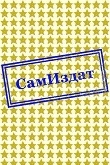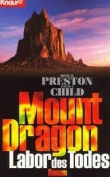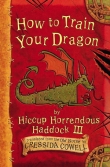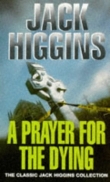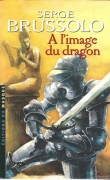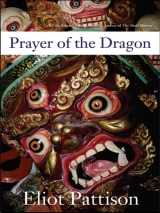
Текст книги "Prayer of the Dragon"
Автор книги: Eliot Pattison
Жанр:
Полицейские детективы
сообщить о нарушении
Текущая страница: 10 (всего у книги 24 страниц)
But Shan kept watching. The scene at the mine ended, the screen turned blue for a moment. Then he saw the image of a lichen-covered rock and what might have been a shadowed painting beyond.
“The camera lesson is done. Stop playing and listen to me,” a female voice declared in English. It was Abigail Natay, but not the careful, patient Abigail. This was an urgent, insistent voice. The camera had been set down but it had not been shut off.
“This has to be done tonight,” Abigail said. “I finished most of it this afternoon. You know what to do, where to put it?”
“Yes, if I must,” came a whispered, fearful reply. The man sounded young. He spoke in slow but confident English. He had pulled the camera closer. Abigail appeared, sitting on the rock, her shoulder and one side of her face visible. Long shadows fell across her arm and the rock-strewn ground beside her.
“Take this,” Abigail said, almost apologetically. As she turned to lift something from behind her Shan glimpsed her front pocket. He pushed the rewind button and found the moment when she turned, then froze the image, staring at it in confusion. Pinned to her shirt pocket was a paper talisman, in Chinese, reminiscent of a charm to guard against evil spirits. It brought the superstitions of his childhood back to him. He studied the ideograph on the paper. It was not a protective charm, he realized. It was a prayer for the soul of one who has been killed by violence, to help it avoid one of the many hells that such victims were susceptible to.
It made no sense. Hostene had said Abigail could not speak Chinese. She was not there to study Chinese traditions. But then, as he studied the rest of the scenes, nothing made sense. Nothing happened that could be explained by anything he had learned thus far on the mountain. Abigail began extending things toward her invisible companion. First, she handed a small nugget of gold to the man who remained offscreen. Then, from the shadows on her opposite side, she lifted four more items, which she dangled in front of her unknown companion with an expression that chilled Shan. Two sets of bones, two humerus bones fastened to two ulnas, then two femurs fastened to two tibias, each set connected with what appeared to be shoelaces through holes bored at the ends of each bone. Two arms, two legs, as if she were constructing a skeleton.
“I can’t,” the man moaned.
“You will,” Abigail insisted. “We have to do this together or all is lost. There is a war on this mountain and you have to chose sides.”
After a long pause, the man said, “First tell me how many sides there are.”
Abigail offered a sympathetic smile but did not reply. “Think of your family. Think of the old ones,” she said. Then, impossibly, “Think of Eight Treasures in a Winter Melon.” Surely he had heard wrong. The words described a traditional dish favored by China’s gourmets, eight special ingredients cooked in broth, then poured into a hollowed melon.
“They’ve starting putting out other things, on sticks. The blood drips down into pools,” the man said.
Shan’s mouth went dry. He replayed and replayed the exchange again. The sound from the tiny speaker was poor but he dared not raise the volume while Hostene was nearby.
That was the end of it. Abigail moved offscreen. Shan saw nothing but rocks and dirt and then, as the shadows shifted, the sandal-clad foot of a deity. He fast-forwarded the tape. There was nothing but empty blueness, until the tape ran out. He stared at the blank screen, shut off the camera, and silently returned it to Hostene before gesturing him toward the gully.
They had just turned onto the main trail when a high-pitched cry brought them to an abrupt halt. A figure on a red bike hurtled around a rock. The hood of a black sweatshirt covering his face, one hand was on the handlebars, the other swung a five-foot-long pole.
In an instant, the faceless man was aiming at Hostene’s head. The Navajo twisted and leaped. The club landed a glancing blow on his shoulder as he dropped to the ground. Shan stumbled as he ran to help Hostene, and with a kind of war cry the man struck Shan’s knee with his front tire, barely missing Hostene’s head with the pole. Shan pulled the Navajo up, shoving him toward rocky ground where the bicycle could not follow, then grabbed a short stick from the ground. He waited for the rider, feinted one way, ducked to avoid the savage swing of the pole, then shoved the stick into the rear wheel as the man passed.
The effect was exactly as he had hoped. The stick caught in the spokes, stopping the bike so abruptly the rider flew over the handlebars.
“ Cao ni ma!Fuck your mother!” the man spat in Chinese as he hit the ground. Seeing that his prey had left the trail, he lifted the bike in two hands and threw it toward them before fumbling for something in his pocket.
Shan did not linger to see what sort of weapon he had. He grabbed Hostene and dashed behind a boulder, watching as the man recovered his bicycle and rode away.
As they waited to be sure their attacker was gone, Hostene replaced the videotape with another from his pack and they sat by a bubbling spring, watching a second tape on the camera. On it Abigail described how sacred mountains anchored the Tibetan gods, much as they did in the Navajo belief system. After several minutes the screen abruptly went black. Hostene looked as if he had been struck. He had lost Abigail for a second time. “Battery,” he muttered, and silently stowed the camera in his pack.
The sun was nearly gone, and Shan was fixing the location of the next grove of trees in his mind so they might reach it in the dark, when a sleek gray shape swooped across their path. He paused a moment to admire the creature and walked on, before realizing that Hostene was not following.
“What is it?” he asked.
“The owl. It’s an omen. We must make camp.”
“I can find the way to the next grove,” Shan countered. “I can. .” But seeing the way Hostene stared at the patch of sky where the owl had disappeared, he silently began to gather fuel for a fire.
As they arranged their blankets under an overhanging ledge, Shan asked why the American military had taught Hostene Mandarin. His companion explained that the Navajo were often considered linguists because usually they were raised speaking two languages, that sometimes, as in World War II, the army still assigned the Navajo to speak their native tongue in combat zones in lieu of a code. But Hostene had gone to language school during the Vietnam War to enable him to serve on planes that took off from the United States, refueled in Guam, and patrolled the Chinese coast, monitoring Chinese radio broadcasts.
“You must think me an old fool,” Hostene said as they lit their fire. “A lawyer and a judge, frightened by a little gray owl.”
Shan said, as he pulled out some of the cold mutton dumplings Dolma had packed, “The only fools are those who do not obey what their hearts tell them. I often made camp with Lokesh because he thought he saw a face in a rock or believed a pika was trying to tell him something.”
“It’s not exactly that I”-Hostene struggled for words-“I never. . it’s just that here we are on the sacred mountain with my niece trying to connect with the sacred things and. .” He shrugged. “To our old ones, an owl was a harbinger of death.”
“Whether we do it for the old ones or for Abigail or for the owl or because my legs ache,” Shan replied, “this is where we will make camp.”
Hostene smiled gratefully. “We don’t do well with death, my people. For centuries we lived in hogans, round houses made of logs and earth. If someone died in a house it was abandoned and a new hogan built. Ghosts were to be avoided at all costs. My father would undergo a purification rite whenever an owl flew close to him. He said otherwise someone in the family would die.
“When my sister was dying, she talked to Abigail about her birth, things that her mother said she must know. Abigail wasn’t born in a hospital like she’d always thought, but in a hogan. They never mentioned it before because when she was a teenager, they realized she would have been embarrassed. An old singer was there to bless her first breath. The first thing she tasted was corn pollen mixed with water, to make sure the holy people were aware of her and blessed her too. They used a special cradleboard for her, one that had been in our family for ten generations. Then, when she laughed, we had a welcoming ceremony.”
“Laughed?”
“It is our old way. You know a baby is truly a human, and that it will live, when it laughs out loud. A feast is held and gifts are given by the parents to all their friends, especially rock salt, to honor Salt Woman, one of our Holy People. Special amulets were given to Abigail as an infant, which she was to keep all her life. A small pouch with soil from each of our sacred mountains, small stones from secret places, other things no one may speak about.”
Hostene searched the dark sky and shivered, pulled his blanket over his shoulders. “But when she was young, maybe five or six, a terrible thing happened. Her family was visiting that same old singer, the hataali.When they were outside she found his sacred objects used in the ceremonies. She put his ceremonial basket over her head and broke open a pouch of sacred pollen. They say such a sin will affect the child who commits it later in life. Her parents asked for a chant, a purification, but the next week the old man got sick and never recovered. Abigail was due to go away to the government boarding school. The rite was never performed. They tried to bring her back for it but the government teachers wouldn’t permit it. They said that was exactly the kind of thing she had to stay away from. Later, we found out they had thrown away all her amulets.
“Abigail made light of it when she first heard the story, saying she would use it in her classes to illustrate the psychocultural elements of taboo. But it’s been troubling her recently. One night after we arrived on the mountain, she admitted she was worried that what had happened when she was young might affect her work here, might blind her to important signs here on the mountain.”
Shan said nothing. They retreated into their rock shelter. A cloud had passed in front of the rising moon. From somewhere higher on the mountain an owl called.
Hostene was awake at dawn. Shan had been tortured by nightmares, and been up for hours. Hostene declined the dried fruit Shan offered him for breakfast. They continued on to the next grove of trees, where they found only the remnants of dozens of small conifer cones consumed by the pikas. At a second grove there was only a ketaan stick jammed into a crack in a painting and broken off. Shan pointed to the many boot prints in the soil, and they each picked a set to follow. Shan went in the opposite direction from Hostene, after they’d arranged to meet back at the painting in ten minutes. But Shan’s trail soon disappeared at a rock ledge. He stood, staring at the treacherous-looking summit, still covered with small patches of snow. He was about to go back when a shadow appeared on the rock beside him and he heard muffled murmuring. He lowered himself to the ground and began to whisper a mantra.
The shadow moved one way, then another. Up, then down. When the hermit finally showed himself he circled Shan, who maintained his recitation. Rapaki finally squatted in front of him.
“On the summit,” Shan ventured, “wait the secrets of the Lord of the Mountain.”
The hermit’s eyes grew round. “At the top crouches the great one,” he said in the singsong rhythm he used for all his utterances. “His mane of turquoise flows everywhere. He spreads his claws upon the snow.” Rapaki’s head bobbed as he looked up and down the slope, as if searching for something.
“You are trying to reach him. I want to help too.”
“When there was a fertile field, there was no master.” Rapaki’s voice was like a machine in need of oiling. “Now the master has come and it is overgrown with weeds.”
The only intact book in the hermit’s cave, Shan recalled, had been the Song of Milarepa, the teachings of the greatest of the Tibetan saints. He realized that every sentence Rapaki had just spoken was a verse from the sacred text.
“In strict seclusion without man or dog, you may have the torch to see the signs.” Shan also knew some of the verses.
Rapaki responded with a rapid fire of words. Those that Shan made out seemed to be disconnected. Honored by the waking dead, he heard, face like the circle of the autumn moon, then finally, raksa raksa svaha, the ending of what was called the mantra for cheating death.
The hermit squinted at Shan as if to see him more clearly, then circled him again. As he completed the circuit he gasped and bent, pointing at Shan’s arm. A tiny, brilliant reflection from a crystal in a nearby rock had appeared on the back of Shan’s hand. Rapaki gazed intently at the silver patch of light. “Ni shi sha gua!”he exclaimed. “Ni shi sha gua!”
Shan was dumbfounded. It was not possible that the hermit knew Chinese. But he had perfectly pronounced four Mandarin syllables, an insult. Literally, it meant, You stupid melon, though it was commonly understood as You retard, you idiot, you damned imbecile.
Shan could see the white surrounding Rapaki’s irises. The hermit seemed terrified. Something struck Shan’s arm as the hermit backed away. He was throwing sharp-edged stones at Shan. Each connected painfully with Shan’s arm or chest. Then the light shifted, the silvery reflection vanished, and Rapaki stopped. Shan raised his hands, palms outward.
“You may have the torch to see the signs,” Shan repeated.
The hermit cocked his head, clutching the prayer amulet suspended from his neck, his frightened expression changing to one of confusion.
Hostene called. Shan glanced over his shoulder. When he turned back, Rapaki was gone.
He did not mention the hermit to the Navajo, who was waiting at the painting. As Hostene began to walk toward the next grove, a quarter mile away, Shan put a restraining hand on his arm.
“No more trees,” Shan declared. “We must investigate elsewhere.”
“But Abigail-,” Hostene protested.
Shan countered, “Gendun is the reason you are alive. And last night I had nightmares about Gendun being tortured. When we catch the murderer, I think we will learn where your niece is. If we don’t catch the murderer, she may be his next victim. But it is certain that when Chodron does not get what he needs, Gendun will pay. And then you.”
Hostene gazed forlornly at the trees. For a moment Shan thought the Navajo was going to flee up the mountain alone.
“This mountain is more alive with activity than all the ranges around it,” Shan said, surveying the slope again. “But all its people have become skittish and secretive. They are only active in the shadows, shy of the open. It’s how you survive when predators lurk overhead. There is a nerve center here for the miners’ operations called Little Moscow. It cannot be far from this place. We must go there now.”
He pulled out the rough map Hostene kept in his pack, looking for somewhere central but hidden, where thirty or forty men might converge without being conspicuous, and focused on a shaded area low in the center of the slope, about three miles from where they sat.
“That’s a maze of ravines,” Hostene explained. “Tashi warned us to stay away because they were so dangerous.”
They began a cautious descent to the labyrinth of gullies that stretched below them. As they proceeded, vague scents of roasting meat and wood smoke told them they had guessed correctly, but they could not tell where in the maze the miner’s camp was located. Then Hostene pointed to a tiny blemish in the sky, a ragged thread of smoke rising from one of the ravines to the east.
They soon discovered a well-worn trail bearing the tracks of boots and bicycle tires that wandered around serpentine rock walls and spires and found themselves in the shadows at the edge of a wide clearing in the center of which was a smoldering fire. Huge rock slabs had split from the walls, falling upon each other, forming natural lean-tos and shallow caves. Awnings of canvas had been added to some, several had photographs of family or makeshift mileage signs to Chinese cities at their entrance. The square fronts of the makeshift structures, the laundry hanging on poles from several, the scent of fried rice and wild onions coming from a nearby brazier, the wooden birdcage that incongruously hung from a pole before one abode, the two men playing mah-Jongg on upturned buckets with small piles of cash beside them all brought an uninvited pang of nostalgia to Shan. The scene reminded him of a hotungfrom the cities of his youth-an alleyway, teeming with life, which had defined the character of many Chinese neighborhoods before the government had replaced them with blocks of high-rise housing.
From the shadows Shan counted sixteen miners. They had the wild look of men who took every advantage of living outside the law. Half of them stood near the dying fire, cursing, gesturing threateningly toward a forlorn, frightened figure sprawled on a blanket.
Hostene hung back, pulling on Shan’s arm. But when a tall lean man in a leather vest kicked the helpless figure on the blanket Shan stepped into the open.
“No-you mustn’t!” Hostene warned from the shadows.
“I have no choice,” Shan said. “They have my assistant.”
“Ta me da!”gasped the first miner who spotted him. He gave a loud whistle of alarm.
Within seconds more men emerged from the shelters, some brandishing shovels and picks like weapons. The rough faces that stared at Shan appeared to have come from all corners of China.
Some bore the mixed Tibetan-Chinese features that were becoming common on many Tibetan streets. But the eyes of each were stone hard. As Shan passed them, the men closed in behind him, following him to the blanket before the central fire.
This village too had its own protocol. The miners formed an outer circle, leaving Shan and the tall man in the vest in the center beside the frightened figure on the blanket.
“Welcome to Little Moscow,” the man in the vest declared. “I regret to announce that applications for residency are no longer being accepted.” A murmur of laughter swept through his audience. “We operate a very exclusive resort.”
Shan made a show of surveying the makeshift structures of the miners’ town. “I was hoping for domed churches and caviar.” Over the man’s shoulder, Shan saw a fresco, one of the most detailed paintings he had yet seen on the mountain, of deities and ritual items painted in an unusual style with unusual patterns.
The tall Chinese said, “Moscow is where the proletariat learned it had nothing to lose but the chains of communism. Moscow has shown the rest of us what the new age means.”
Shan said, “Spoken like a true citizen of the world.”
Some of the miners were well educated, Yangke had told him. Some were even former college students who had decided to get a jump on the market economy. A wide plank hung from a peg that had been pounded into the fresco. It was painted with patterns of colored stripes leading to corresponding names. He realized it was a guide to the ownership of the claims. Beside it, leaning against the wall, were several wooden poles, straight limbs that appeared to have been cut and shaped for use as shovel handles.
“Bing,” the man identified himself, with challenge in his eyes. “Mayor Bing. Managing Director Bing, if you prefer.” There were names in China that immediately dated their holders. Bing, Chinese for soldier, had been popular four decades earlier.
Thomas Gao was the man sprawled on the blanket before the dying fire. He was bruised and bleeding from cuts on his chin and arm but not otherwise injured. He looked up with the expression of a pampered child caught pilfering sweets. Scattered over the blanket were canned goods, a package of batteries, a saltshaker, pencils, two slightly used Chinese paperback novels, four metal cups, several packs of cigarettes, half a dozen old magazines, a stick of deodorant, and a cigar in a plastic wrapper. He had set out his wares but his customers had other business in mind that day.
As Shan bent to help him up, Thomas pulled him closer and whispered in his ear. Shan went cold. Then one of the shovel handles was pressed against his shoulder, levering him backward, away from Thomas.
At the end of the handle was a short, wiry man wearing a green quilted jacket. “Captain Bing says no,” he growled. A scar ran down one side of his face. He had the hardened look of a soldier.
Shan straightened, studying Bing again, considering his indifferent expression and the obsequious way the man with the shovel handle looked at him. “Public Security pensions must be losing their value,” he said.
The tall man laughed. “Public Security officers are turning into babysitters and computer specialists. Who can afford not to accept a position at the forefront of the new economy when it offers itself?”
Shan edged toward the mining claim chart. As he reached it, the scar-faced man grunted a curse and deftly pushed the end of his pole into Shan’s shoulder, spinning him about and shoving him against the fresco. He had seen enough, however. The sticks with the two crimson stripes and one yellow belonged to Bing himself. The blue and red marks had one name beside them. The miner who had claimed Hostene’s campsite, the scene of the murders, was named Hubei.
“Look what you’ve done,” Bing mocked. “You’ve upset the gods.”
Shan saw that a small piece of the fresco had crumbled away where he had brushed against it.
Bing studied Shan coolly, then spoke into the ear of the short man with the pole, who darted away and returned carrying a rough-hewn bench. He placed it by the blanket, then heaved Thomas onto it.
“His people will miss him,” Shan warned.
“He’s going nowhere,” Bing growled. “We’ve no interest in being hacked to death in our sleep.”
“But Thomas is only-,” Shan began.
Bing interrupted by snatching up a black plastic bag lying on top of Thomas’s pack and tossing it at Shan. “He kept a trinket from us today.”
Shan’s throat went dry as his fingers extracted the hard, dark thing. It was a small hand ax, with an old hand-forged head and a short, uneven, homemade handle, smoothed to a sheen from long use. The head and part of the handle were mottled with a brown stain. Shan did not need one of Thomas’s tests to know it was blood.
“Four and a half inches,” Thomas said to Shan in a thin, nervous voice. “I measured the edge. It matches the entry wound on the back of Victim One.”
“Who but the murderer would carry such a thing?” Bing snapped.
“I told you, I am investigating,” Thomas protested, then explained to Shan in a lower voice, “I stopped to get a drink at a spring off the trail this morning. When I returned to my pack this was on top. Someone who knew I was interested left it for me.”
“One lie begets another,” Bing shot back. “Everyone here knows there can be no investigation unless it’s by the government. And the government here is me. Elected by the vote of every citizen. This whelp is no investigator.”
Thomas’s eyes went back and forth, from Bing to Shan. “I am helping Inspector Shan. He is a famous detective from Beijing.”
The declaration was not welcomed by the miners. Two men guffawed, but four slipped away into the shadows. Others stared warily at Shan, tightening their grips around their shovels and picks.
“A disgraced detective!” Thomas quickly added. “A convict.”
“Shan? You’re Shan?” Bing asked skeptically. As he studied his tattered visitor his amusement grew. “Inspector Shan has unique credentials,” Bing said to Thomas. “But you have none. Which means-” A cry of alarm interrupted Bing. Two men appeared from the shadows, dragging Hostene between them. Fearing he would resist, Shan pulled him away from his escorts and led him over to the blanket.
A satisfied smile appeared on Bing’s face. He knocked Hostene’s hat from his head. Murmurs of surprise, then anger, rippled through the crowd.
“We hereby declare you a Hero Worker for exceeding your production quota,” Bing proclaimed to Shan. “You have delivered to us a surplus of murderers. I will send word to Chodron. He wishes some of us to attend the trial, next to you and your pet lama. Nothing validates the social order like taking the life of the disorderly.”
Shan led Hostene to the bench, seating him beside Thomas. The Navajo stared at the gathered men in confusion and despair. Shan stepped in front of the bench, surveying the angry, hungry faces of the miners. Bing’s lieutenant stood by the stack of poles as if ready to distribute them.
Shan went to the center of the circle. “These men are not murderers. They are scholars, each in his own way.”
Bing’s grin showed he was warming to the entertainment. “You are a newcomer to this mountain. You have no notion of what these men have done. This isn’t some prosecution to be dressed up for the propagandists. We are practical men here, we deal with practical facts.” He aimed something in his hand at Hostene’s head. With a momentary stab of fear Shan saw a brilliant spot of red light appear on the Navajo’s forehead. One of the mayor’s tools for keeping social order was a laser pointer. “This one, Inspector, not only was found near the two murdered men, he steals gold from hard-working miners, creeping about in the night like some wild dog. I have sent this information to Chodron. No doubt he would have kept him chained in that stable had he known.”
Hostene flushed and glanced up at Shan.
Bing directed the pointer at Thomas. “And this one treats us like laboratory rats, observing us when he thinks we don’t know, playing the peddler so he can get acquainted with his victims. Sometimes”-Bing strolled along the front of his audience, pausing for effect-“sometimes the young ones like this kill because they have discovered they are incapable of being men. So they express their lust in another way.” He paused again, smiling at Thomas’s expression, raising his brows as he delivered his punch line. “He can’t make his sword work, so he picks up an ax.”
Hostility was growing on several of the faces before Shan. “This man, named Hostene,” he said, indicating the Navajo, “was nearly killed by a blow to his head.” Shan lifted Thomas’s pack, opened the front zipper, and pulled out the photos he had asked the youth to print for him. Thomas’s whispered news had been about the photos and also about the demons on the far side of the mountain. “Here Hostene is some time after the murders. The real killer put him there, then painted signs on the rock with blood.”
“You don’t know that,” Bing growled. “He could have been injured fighting his victims, then used their blood to paint those signs before he collapsed.”
“I do know it,” Shan said. “We all know it because the picture tells the truth.” He walked along the ring of miners, holding the photo out to them at eye level. “Because the bloodstains on his shirt and the bloodstains on his boots run across onto the rock and the grass, in perfect alignment. He was unconscious while someone else painted the images in blood.”
“Which means,” Bing shot back, “that the boy did it. This young lunatic turned on his partner in crime. The boy was the one with the ax. Chodron knows what to do with lunatics. The sharpened spoon, but not for the eyes! You put it up the nose and twist.” A man in the back burst out laughing. But not all the men agreed with Bing. Shan saw several studying the photo, looking worried.
“The boy did it,” Bing insisted, “then murdered the other one, the farmer, yesterday. Once the killing sickness starts, it becomes like a beast that has to be regularly fed.”
There was a kettle on a brazier at the edge of the fire ring. Shan picked up two cups from Thomas’s blanket, filled them with lukewarm black tea, and handed them to Thomas and Hostene. He walked along the line of miners then lifted the ax from the blanket, handed it to Bing, and stepped out of the circle to a place where two large rock slabs had fallen, forming a right angle. He pointed to an eighteen-inch slab at the front of a nearby lean-to that was serving as a table. “Move that,” he instructed Bing’s deputy.
“Do it, Hubei,” Bing said in an amused tone.
The man leapt to action, lifted the stone, and placed it where Shan directed, one foot from the wall.
Shan paused, studying the short man a moment. He was Bing’s deputy and the one who had claimed Hostene’s campsite. He pulled another photo from the stack in Thomas’s pack and handed it to one of the miners, who looked it over and passed it around the circle. “You can see the slaughter ground where the two bodies were found. Two rock walls close together, just like here, a flat rock below.” He asked Hubei to lie on the ground, then Shan lifted his arm. “It’s just after dawn. I drag my victims in here. The young one, Tashi, is unconscious but alive. I have to remove his hands for some reason. I chop them off on this rock, in the left corner of the little chamber, just as the picture shows. See how the blood spurts onto the rock wall, but not onto the chopping slab.”
Hubei emitted a nervous laugh as Shan pulled back his shirtsleeve and arranged his arm on the stone slab. “The arm was held down for the cutting stroke, right at the edge of the slab. Give the boy the ax,” Shan instructed Bing. The mayor of Little Moscow silently complied, then pulled Thomas to his feet.
“Come, cut off his hand, Thomas,” Shan invited. The man on the ground cursed and began to rise, but a moment later was pinned down by a pole in his ribs. Bing, at the other end of the pole, gestured for him to spread his arms again.
“Show us,” Shan encouraged Thomas. The man on the ground squirmed, the color draining from his face. Bing pressed harder on his pole.
Thomas advanced reluctantly to the man on the ground, paused, began to kneel, and paused again as he bent. Then he straightened, tried to step over the man but stopped, realizing he could not fit into the small space between the stone and the rock wall. He looked up to Shan with a puzzled, pleading expression.

